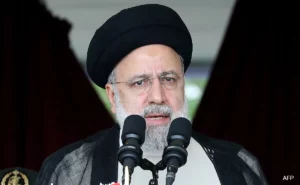Sri Lanka Elections: What does it mean for the IMF bailout

Sri Lanka elections
Sri Lanka Elections: What Does It Mean for the IMF Bailout?
Sri Lanka is set to hold a highly anticipated presidential election on September 21, 2024, which will serve as a referendum on the country’s stringent austerity measures implemented as part of a $3 billion bailout from the International Monetary Fund (IMF). The election comes two years after an economic meltdown that nearly doubled the rate of poverty in the island nation.
The Economic Crisis and IMF Bailout
In late 2019, newly elected President Gotabaya Rajapaksa enacted tax reductions that diminished state revenue just before the COVID-19 pandemic wreaked havoc on the economy. This led to grounded international flights, a series of lockdowns, and a significant decline in remittances from Sri Lankans abroad who lost their jobs.The outcome was an unprecedented debt default, a steep economic downturn, and soaring inflation that peaked at 70%. This turmoil ignited a protest movement aimed at limiting presidential powers, combating corruption, and holding Rajapaksa’s family accountable for their role in the country’s financial collapse.In 2023, under President Ranil Wickremesinghe’s administration, Sri Lanka reached an agreement with the IMF for a bailout, which will be disbursed in installments over four years. As part of this agreement, the government increased taxes, raised utility rates, and put certain state enterprises up for sale. These actions have contributed to a decrease in inflation, which is now at a low single-digit percentage. Borrowing rates have dropped, the economy is growing more robustly than anticipated, and advancements in debt restructuring have facilitated additional funding from the IMF and other financial institutions.
The Presidential Candidates and Their Stance on the IMF Bailout
The Elections Commission has approved nominations for a record 39 candidates, but four have emerged as the leading contenders:
- Ranil Wickremesinghe symbolizes policy continuity, yet his victory is uncertain as the austerity measures have faced widespread disapproval. He has defended these policies and seeks a mandate to continue the IMF program and sustain economic recovery.
- Sajith Premadasa, the principal opposition leader in parliament, aims to reduce taxes from the rates agreed upon with the IMF to alleviate economic hardships for families.
- Anura Kumara Dissanayake (AKD), the leader of the Janathaukth Peramuna party, advocates for transparent governance, the eradication of corruption, and has promised to reopen discussions with the IMF, opposing the current debt restructuring agreement.
- Namal Rajapaksa, the nephew of the ousted president and son of former leader Mahinda Rajapaksa, is campaigning as a representative of Sri Lanka’s most influential political family, aiming to reconnect with voters, particularly younger citizens concerned about unemployment and rising living expenses.
The Growing Unease and Investor Concerns
The growing unease about policy continuance and political stability post-elections is causing Sri Lankan dollar bondholders to sell off as a risk reduction measure, with some investors aiming to reduce their country exposure over rising political uncertainties before the elections.Concerns are growing domestically about political stability and the impact a possible new government may have on Sri Lanka’s IMF bailout agreement, the hard-fought external debt restructuring agreement, and the IMF’s next tranche of funds.Some experts worry that such sell-offs can have an impact on Sri Lanka’s International Sovereign Bonds (ISB) debt restructuring process, with concerns raised about how it may impact the haircuts Sri Lanka had planned to negotiate for. While such issues may complicate negotiations of debt restructuring, another impact could be that the uncertainty, if coupled with significant deviation from the current undertakings Sri Lanka has made as a sovereign entity in terms of fiscal discipline, state-sector restructuring and revenue raising, will scare off potential investors who are keen on providing Foreign Direct Investment (FDI) to Sri Lanka when the economic situation improves.
The Way Forward
As Sri Lanka prepares for the presidential election, key candidates must act now to dispel myths and give clarity to their plans if elected. They need to clearly define their goals and provide clarity, especially on the economy and the ongoing IMF programme, debt restructuring which they plan to enact. Sri Lanka can ill afford such uncertainty moving forward.The IMF has stated that they fully respect the democratic process for elections to take place in any country and will adapt to that process. They have also indicated that they are willing to listen to different views on how the program objectives can be reached, as long as they are realistic and achievable within the timeframe of the program.As Sri Lanka navigates its IMF bailout program, the outcome of the presidential election will have significant implications for the country’s economic future and its relationship with the IMF. The next few months will be crucial in determining the path forward for Sri Lanka as it continues its recovery from the devastating economic crisis.






